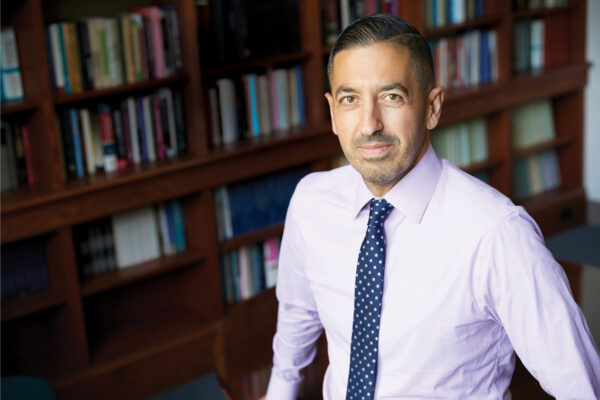When I graduated from my PhD program in 2003, I entered a buoyant academic job market and chose WashU from among a number of attractive tenure-track positions. In the 20-plus years since then, the number of tenure-track jobs across the humanities has plummeted, and a very different academic workforce has emerged. The financial crisis of 2008 initiated a free fall that the pandemic only intensified, with many permanent faculty positions now replaced by temporary ones across a spectrum of precarity.
While faculty in departments and programs are reshaping their curricula to fill in these gaps, I believe there is an even more potent source of change and momentum: graduate students themselves. As director of the Center for the Humanities, I’ve made it my mission to empower them to shape their own futures and advocate for themselves. In doing so, they create new career paths and learn to deploy their many skills beyond the academic world.
National statistics show that 89% of humanities PhDs cannot identify their value for nonacademic careers. In fact, they are skilled researchers who know how to craft and understand narratives, possess global and inter- cultural fluency, have expertise in collaboration and community building, and are motivated by a work ethic informed by leadership and service. While the center will always support students who seek academic jobs, I also want to help WashU students recognize the multitude of outcomes — in nonprofit, corporate and governmental sectors, for example — for which their graduate training prepares them.
As the humanities center works alongside others on campus invested in graduate education, I have focused our efforts on a unique kind of support. Instead of the traditional top-down structure of the adviser-advisee relationship or more broad-based career counseling, our programming — which responds to students’ interests in large-scale societal questions — combines training opportunities with practical instruction on contributing to the public good.
Here at WashU, our center has been at the forefront in national discussions around alternative career outcomes or “next gen” pedagogy. In 2018, my predecessor, Jean Allman, won a $1.5 million Mellon Foundation grant, “Redesigning Doctoral Education” (RDE), designed to rethink humanities graduate training. The original model was structured to retrain faculty to expand graduate students’ classroom experiences. Having made good headway here, in the last two years since I became director, we have moved the focus to training graduate students themselves.
“While the center will always support students who seek academic jobs, I also want to help WashU students recognize the multitude of outcomes — in nonprofit, corporate and governmental sectors, for example — for which their graduate training prepares them.”
Stephanie Kirk
Two recent center-organized workshops offer concrete examples of our goals. Funded by the RDE grant, “Writing as Advocacy” in April brought together a national group of outstanding humanities practitioners in a two-day workshop to equip students to think broadly about writing, community and the role of the humanities PhD in the contemporary world. These sessions helped participants conceive of how their existing capacities in writing could lend themselves to career options in such areas as qualitative research, educational consultancy, nonprofit work, social impact companies and beyond. Last year, our workshop “The Community- Engaged PhD” brought graduate students and faculty into conversation with St. Louis–based community organizations and nonprofits to learn how to develop ethical collaboration practices for social advocacy work.
Building on our ties to St. Louis, in December 2023, the center received a National Endowment for the Humanities grant to collaborate with local mission-driven community organizations to place PhD students as interns. While embedded in organizations such as the Griot Museum of Black History, Forest ReLeaf, 4theVille, Repertory Theatre of St. Louis and Trailnet, the students will apply and expand their workplace skills while learning from and enriching these partners doing crucial work in our region. In addition, students will gain project management experience as they organize our new Midwest Intern Workshop and Careers for Creative Humanists Fair.
I have seen our students in action in our workshops and other events. They have the skills and commitment to transform a multiplicity of workplaces. As they begin to graduate from WashU, they will teach us what success looks like in this new era.


